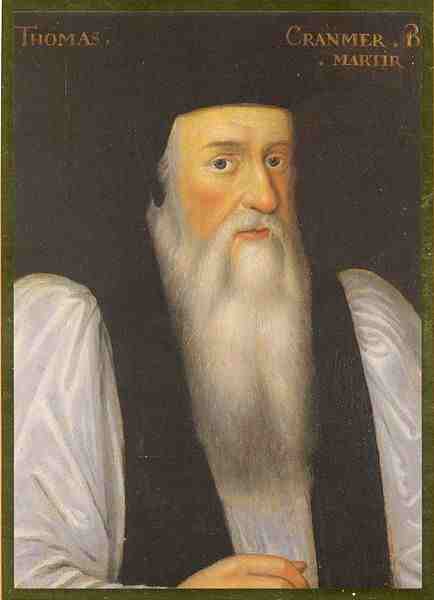On this day in Tudor history, 20th March 1549, Thomas Seymour, 1st Baron of Sudeley, was executed by beheading on Tower Hill.
In today's video, I talk about his execution and share the poem he wrote in his last days. I also give details of how some of Seymour's contemporaries viewed him.
And here is the video I did on the Act of Attainder used against Thomas Seymour, and the 33 counts of treason he was accused of:
Also on this day in history:
- 1469 – Birth of Cecily, Viscountess Welles and princess, also known as Cecily of York, third daughter of Edward IV and Elizabeth Woodville. She was born at Westminster Palace. A marriage alliance with Scotland was made in 1473 promising Cecily to James, the infant son of James III, but Cecily was still unmarried at her father's death in 1483. Her uncle, Richard III, arranged Cecily's marriage to Ralph Scrope of Upsall, but Henry VII dissolved the marriage in 1486 and she married John Welles, Viscount Welles, the King's half-uncle. After Welles' death in 1499, Cecily went on to marry Thomas Kyme of Friskney. Cecily died in 1507.
- 1544 – Baptism of Cuthbert Mayne, Roman Catholic priest and martyr. He was hanged, drawn and quartered at Launceston on 30th November 1577 after being charged with traitorously getting hold of a papal bull and publishing it at Golden Manor, defending the authority of the Pope, purchasing a number of Agnus Dei and giving them to people, and celebrating the Catholic mass.
- 1555 – Burial of John Russell, Earl of Bedford, courtier and magnate, at Chenies, following his death on 14th March. It was a lavish funeral with three hundred horses, all in black trappings.
- 1560 – Birth of Sir Edward Hoby, scholar, theologian, politician and diplomat, at Bisham in Berkshire. He was the eldest son of Sir Thomas Hoby and Elizabeth (née Cooke), daughter of Sir Anthony Cooke. Elizabeth I favoured Hoby and used him on a number of secret missions.
- 1572 - Death of Mary Bassett (née Roper), translator and granddaughter of Sir Thomas More. Her education was praised by Roger Ascham and Nicholas Harpsfield, and she presented Mary I with a copy of five books of Eusebius's “Ecclesiastical History” which she had translated from Greek into English.



“He heard it said” might as well have been a post on Twitter as Hugh Latimer appears to have been repeating hearsay, even if he didn’t believe it. There are a number of hidden views in these poems and the dedication to him by Throgmorton. I believe Thomas Seymour was a controversial and foolish man and he plotted against the King but much of what he was accused off sounds more like something from the rumours of social media (aka the English Royal Court) than factual charges. I believe he was sincere in his intentions to marry Lady Elizabeth, even if he may not have had honourable intentions towards her while married to her stepmother. She was wealthy, just in bloom at fourteen and was probably attractive, restored to the succession, but illegitimate, but very rich and a key to the crown. There had been accusations of his attempts to groom Elizabeth and act inappropriate towards her, if servants being threatened with torture are telling the truth, he proposed to three women within a few weeks, so yes probably was plotting something to do with marriage to Elizabeth, who didn’t actually turn him down but he put the question again and she said she would do nothing without the consent of the Council. Elizabeth was questioned when Tom Seymour was arrested and said the same thing. However, she didn’t confirm or deny anything else against him, but 33_indictments was a lot, even for a treason charge and he was condemned by Act of Attainder, that fatal legal trick which found a man or woman guilty and condemned them to death at the same time, also the Act attainted the next generation, keeping them from inheriting their parents lands and titles. There was of course the element of Edward Seymour having to condemn his own brother, as Lord Protector that was his role in matters of treason, but the case had to be seen to be convincing. Tom Seymour was guilty of treason, he had asked a member of the Royal family to marry him and he had tried to kidnap the young King, that was treason. However, all that stuff about blasphemy and so on, all of that was added to sully his reputation.
Yes! I’m never sure when I’m reading it whether Latimer is being careful in his words – trying to strike a balance between doing what he’s been told to do but also telling the truth – or whether it’s just the way he chose to do it.
I think he was reckless and ambitious but, as you say, not all of these things.
I also think it was awful of the members of Edward’s government to make someone who was a friend or at least had some respect for Tom Seymour do the sermon which condemned him. What a cruel thing to do, but these monarchs and their representatives seem to make a habit of it, choosing people who had admired someone being executed, as some bazaar test of loyalty. I know treason and heresy executions were public theatre, but this just seems warped.